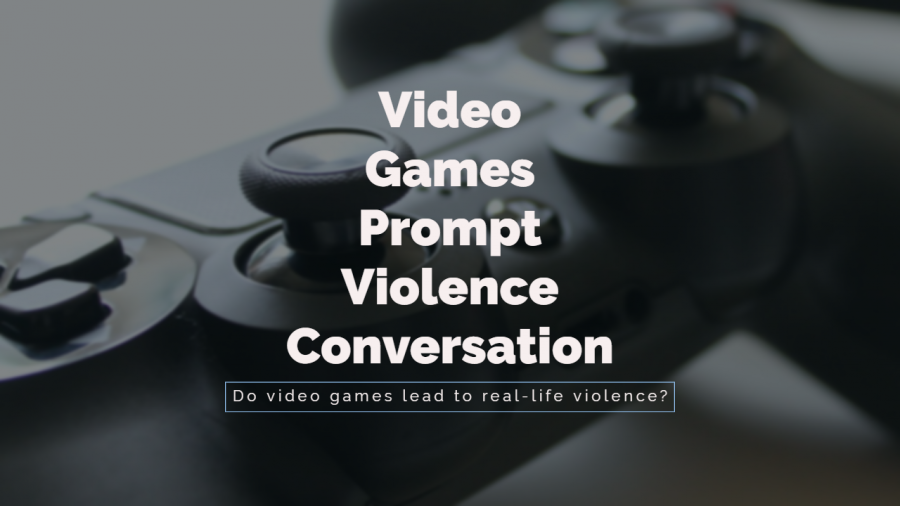Video Games Prompt Violence Conversation
Do video games lead to real-life violence?
September 27, 2019
From the beginning of the video game industry, there has always been opposition to their marketing practices and high popularity towards violent video games. And with mass shootings on the rise, according to a recent study by the Los Angeles Times investigative team, it only adds to the question: Do violent video games lead to real-life violence?
Let’s start from where these accusations began. In 1993, the game that was hailed “The greatest game of all time”, “Doom”, was released to the public and over a million copies were sold. But maybe the more troubling aspect of the game is that it features shooting demons in outer space, features vocabulary like “shooters” and “deathmatch”, and is one of the first realistic and detailed gory games. It began concerning parents nationwide that games could be lobbying these ideas of killing and naturalizing shooting to young kids.
Though these concerns were valid, the American Sociological Association actually studied the concerns that parents had about the game and compared it to statistics from the decade.
“In the ten years following [Doom’s] release, homicide arrest rates fell by 77 percent among juveniles,” The American Sociological Association said. “School shootings remain extremely rare; even during the 1990s, when fears of school violence were high, students had less than a 7 in 10 million chance of being killed at school.”
According to Karen Sternheimer, a sociologist at the University of Southern California, in 2000, the FBI had a difficult time profiling rampage shooters who were in their teens, but the one thing they could find in common with the rest was that they played video games.
“In the absence of a simple explanation, the public symbolically linked these rare and complex events to the shooters’ alleged interest in video games, finding in them a catchall explanation for what seemed unexplainable,” Sternheimer wrote. “However, the concern about video games is out of proportion to their actual threat.”
So could this just be a mistake? Is there any connection between videogames and violence? The short answer is yes, well, kind of. Nicholas J. Westers, clinical psychologist and Assistant Professor at UT Southwestern explains it pretty well and suggests what parents can do.
“It’s hard to establish a clear link between aggressive behavior and video games, but this new study suggests that some young people who play violent video games do demonstrate increased physical aggression over time,” Dr. Westers said. “Used responsibly, video games can be a fun and healthy hobby for children and adults. Parents know their children best and need to work together to establish rules for video games.”
So this remains true today, video games do increase aggression, but it also may indirectly lower crime rates amongst teens. After all, when they are inside playing video games, they aren’t out doing illegal activities. That’s also what many parents think despite the fears of video games increasing aggression.
“When parents are worried about violence in games, children are more likely to hear them out because it’s coming from a place of experience and understanding,” Dr. Westers explains. “That doesn’t mean they will like it, but they will be more likely to hear you out, especially if you’ve played with them the very video game about which you’re expressing concern.”
Though both are bad, it’s important to realize that aggression and violence are different, but there is no direct connection of violence to video games. Officials say that parents should heed the warning of the rating of the video game before letting their child play it and to even watch the gameplay to see the kind of content that their children will be playing.


